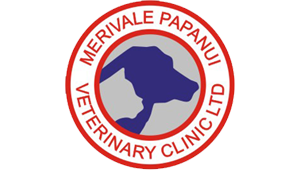Library
-
Canine influenza is a relatively new, highly contagious virus that causes respiratory disease in dogs. It has been reported in all US states and some Canadian provinces. Clinical signs include coughing, runny nose, and fever. Definitive testing can be performed in the early stages of the disease. Vaccination is recommended for dogs at a higher risk of infection or morbidity. The virus is not spread to humans, but cats can become infected.
-
Cannabidiol, also known as CBD, is a naturally occurring cannabinoid (a compound found in the Cannabis plant), which is used as an analgesic (pain reliever) and anticonvulsant. It is used to treat osteoarthritic pain and to help control seizures in dogs and other species. Cannabidiol should only be given under direction of a veterinarian. It is used “off label” or “extra label” in animals.
-
Cats and dogs can become intoxicated by cannabis in various ways, most commonly by eating edibles (e.g., baked goods, candies, chocolate bars, and chips containing cannabis), or by ingesting cannabis directly (in any form). Pets can also be exposed to second-hand smoke. A small amount may affect one pet more than another, so there is no official safe level of exposure. Many of the signs of intoxication are neurological, including disorientation, dilated pupils, and hyperactivity. In severe cases, tremors, seizures, and coma can result. Regardless of the method of exposure, accurate and complete information from the owner is imperative to treat the patient successfully.
-
CannaChews are chewable, hemp-based supplements designed to support the overall health of dogs using broad spectrum cannabidiol (CBD). They may help treat digestive problems, anxiety, joint issues, pain, inflammation, epilepsy, and skin diseases.
-
Capillaria is a small internal parasite, often less than half of a centimeter in length. They are closely related to intestinal worms, though they can live in a variety of locations within the body. Capillaria can affect both dogs and cats, although dogs are more frequently affected. Diagnosis can be difficult because the eggs of Capillaria are shed only on an intermittent basis. While the parasite is easily eliminated with a dewormer, your cat may require additional medications to decrease the inflammation associated with the infection.
-
Capillaria is a small internal parasite, often less than half of a centimeter in length. They are closely related to intestinal worms, though they can live in a variety of locations within the body. Diagnosis can be difficult because the eggs of Capillaria are shed only on an intermittent basis. While the parasite is easily eliminated with a dewormer, your dog may require additional medications to decrease the inflammation associated with the infection.
-
Capromorelin is an appetite stimulant used to encourage appetite in dogs and help manage weight loss in cats with chronic kidney disease. It is a liquid solution given by mouth. Side effects include vomiting, diarrhea, increased drinking and urination, and intestinal sounds. This medication should not be used in pets allergic to it and be used with caution in those with liver and kidney disease. If a negative reaction occurs, call your veterinary office.
-
Captopril (brand names Capoten®, Captril®) is an angiotensin-converting enzyme (ACE) inhibitor. It is used off label to treat congestive heart failure and high blood pressure in cats and dogs.
-
Carbamazepine is given my mouth and is used off label in dogs, cats, and horses to treat seizures, pain, and behavior disorders. Common side effects in animals are unknown, but may include dizziness, sleepiness, nausea, and vomiting. Do not use in pets that have recently used amitraz, are pregnant, or have bone marrow disease. If a negative reaction occurs, call your veterinary office.
-
Carbimazole is a medication used to treat an overactive thyroid (hyperthyroidism) in cats and other animals. Carbimazole lowers thyroid hormone levels. Carbimazole comes in tablet form.
